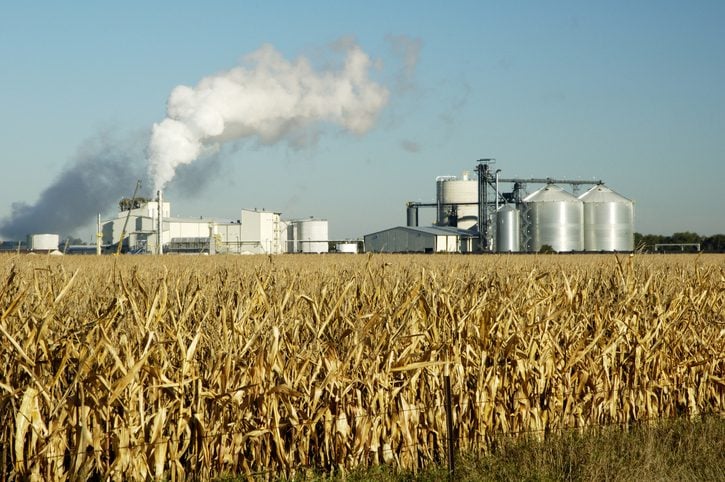A community group in Gary, Indiana, is concerned that a planned biofuel operation will add more pollutants to the city’s already toxic environment and say the company’s legal tactics in ongoing litigation are questionable.
Gary Advocates for Responsible Development (GARD), an advocacy group that works to promote Gary’s environmental and economic stability, submitted a legal filing accusing Fulcrum Biofuel of “abusing discovery” during an ongoing appeal of the company’s air permit.
Fulcrum Biofuel is a California-based company producing the world’s first commercial scale fuel from landfill waste. It recently began producing fuel at its only other operating plant near Reno, Nevada, and plans to construct another plant in Gary.
In December, GARD filed a formal petition with the Indiana Office of Environmental Adjudication, alleging the air permit issued for Fulcrum’s proposed plant violates Indiana law based on inadequate information about the company’s feedstock and emission calculations. Feedstock is any renewable biological material that can be used as fuel or converted to another form of fuel or energy product.
In an ongoing challenge to Fulcrum Centerpoint’s air pollution permit, GARD claims the company is “abusing discovery” by asking members to turn over private information, such as communications with spouses and employers, access to social media accounts and more.
GARD also claims the company provides no data to back up its claim that the fuel it produces will be “net zero carbon,” and the questionable litigation tactics are just a way to scare citizens from questioning Fulcrum’s environmental impacts, said Kim Ferraro, senior attorney at the Conservation Law Center at IU Bloomington Mauer School of Law.
“GARD’s members have every right to join together and question whether the state agency charged with protecting Indiana’s environment followed the law when it issued an air permit allowing Fulcrum to spew more toxic emissions into the already very dirty air that Gary residents have to breathe,” Ferraro said. “Fulcrum apparently doesn’t want that scrutiny and is paying its team of lawyers to shut the citizens down. We’re asking the administrative law judge to intervene and tell Fulcrum to stop harassing our clients so we can get on with the merits of the case — which is whether Fulcrum’s air permit complies with the law and is protective of human health and the environment.”
Currently, more than 78% of Gary’s 68,000 residents are Black. One in three city residents live in poverty.
Gary residents already breathe some of the most polluted air in the country, and the city has been designated by the EPA as an environmental justice community. Gary is surrounded by Superfund sites, steel mills and dump areas along the shores of Lake Michigan.
Residents have higher than average cancer and respiratory disease rates because of the historical level of pollution in the air, soil and water.
GARD President Dorreen Carey questions whether the Fulcrum plant will bring sustainable practices to Gary or pollute the city more.
Fulcrum representatives estimate the 75-acre plant would process waste from the greater Chicago area into 33 million gallons of bio-jet fuel annually, according to the company’s plan.
To heat the material to a degree that it can be gasified, the plan will require the burning of plastic waste, which critics say makes the company’s claim to be green unfounded.
According to GARD’s legal filing, the process has the potential to emit more than 1,400 tons of harmful volatile organic compounds (VOCs) each year. That number is three times more than what BP’s largest U.S. oil refinery reported in 2022.
GARD has also filed a Civil Rights Act complaint with the EPA. The complaint argues that the state’s decision to grant Fulcrum its air permit is part of a longstanding practice of local discrimination on the basis of race, color and national origin.
Biofuel production and use has benefits and drawbacks. It has the potential to reduce some environmental impacts of fossil fuel production and use, pollutant emissions and dependence on foreign suppliers, according to the EPA. Biofuel production and use requires major land and water resource requirements and can cause air and groundwater pollution. Depending on the production process, biofuels can emit more greenhouse gas emissions than some fossil fuels, according to the EPA.
Two reports to Congress concluded: 1. The environmental impacts of increased biofuel production were likely negative but limited in impact; 2. There is a potential for both positive and negative impacts in the future; 3. Energy reduction goals could be achieved with minimal environmental impacts if best practices were used and if technologies advanced to facilitate the use of second-generation biofuel feedstocks, such as waste.
A third report is under review. It will include a new analysis and an update on the impacts to date of biofuel production.
“We hope the administrative judge will tell Fulcrum to stop being a bully and trying to intimidate a citizen group that is rightly concerned with the health and welfare of the people of Gary,” Carey said.
Contact staff writer Jayden Kennett at 317-762-7847 or by email jaydenk@indyrecorder.com. Follow her on Twitter @JournoJay.





